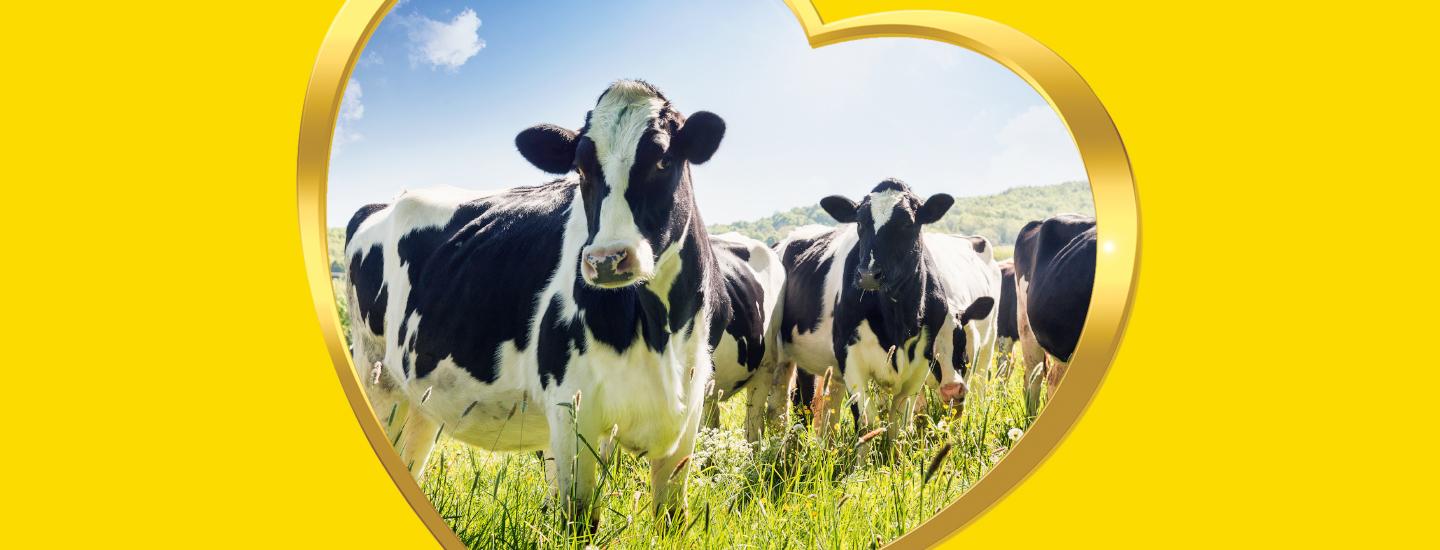SUSTAINABILITY IN DAIRY FARMING
What is sustainability?
When something is sustainable, it simply means you can keep using and consuming it without it running out. Take a cookie jar, for example, that magically refills itself whenever the cookies run low so it’s never empty. Infinite cookies for everyone? But unfortunately, very little in life, except maybe a mother’s love and your child’s potential with NESTLÉ® NESPRAY® FortiGrow™, is truly infinite.
Through sustainability we will be nurturing the planet by improving farming and manufacturing processed to remain true to our commitment.
Why is it important?
Sustainability helps slow down the damage we do to the environment. It ensures that what the planet gives us – fresh air, clean water and healthy soil for food to grow – lasts longer so more people can enjoy it now and in the future.
Sustainability is important because without it, we might not have a conducive planet with all the resources we enjoy today. Sustainability is vital to the future of planet earth. Our everyday actions can have a big impact on the planet and climate.
Nurturing the planet through sustainable agriculture practices allows future generations the opportunity to live life freely and enjoy the delicious goodness of NESTLÉ® NESPRAY® FortiGrow™ the same way we do today.
How do dairy farms practise sustainability?
here are a number of sustainable dairy farm practices that can help us nurture the planet. Here’s a few:
Saving water
Dairy farming uses a massive amount of water. At least 90% of water usage in milk production from farm to fridge happens at farm level. Most of it is used to irrigate/water the grass the cows graze on, and to keep cows hydrated. Did you know that cows are known to be very thirsty, drinking up to 200 litres of water per day, depending on the weather?
Dairy farmers have a big responsibility to save as much water as they can when producing milk, which is why reusing and recycling water is standard practice on most dairy farms. Dairy farmers use water to chill the milk to keep it fresher for longer, safe for human consumption.
NESTLÉ® NESPRAY® FortiGrow™ takes 100% fresh milk and dehydrates all the liquid from it to make powdered milk. The water that gets left behind can also be recycled and reused on the farm – either to provide more drinking water for the cows or to help clean the farm.
It’s not just water that can be recycled and reused.
Reusing waste
Research shows approximately 80% of a dairy cow’s diet cannot be consumed by us humans. This mostly consists of by-products – what is left over from other farming/production processes such as nut shells, cotton seeds, citrus peel and pulp and more that would most probably end up in a landfill. Dairy farmers take what other industries would consider waste and turn that into food that helps provide their cows with the nutrients they need to produce delicious and nutritious milk.
Cows are natural recyclers because they can take what we humans can’t eat and convert it into something we can – milk.
Cow poop – or what we call manure – can be reused as a natural fertiliser on big agriculture farms, and even small gardens like yours at home, to grow fresh fruits and vegetables. Using natural fertilisers like manure helps improve and maintain the quality and texture of the soil, helping it retain water for longer, which means even less water is used overall. Natural or organic fertiliser is a better and safer option than man-made, synthetic and/or chemical fertilisers, as it uses nature’s own nutrients to enrich the soil and grass that cows eat to make their milk as healthy and nutrient-rich as possible.
Some large farms can turn the gas produced from manure into electricity – or what we like to call cow power.
Cow power
Cow manure releases a greenhouse gas called methane that can be quite harmful to the environment. Dairy farmers can convert what could be a harmful release of methane into the environment into electricity to help power the farm and help provide the surrounding area and community with electricity. One cow’s manure – about 114 litres per a day – can help produce enough electricity to light two 100-watt light bulbs for 24 hours.
How? Dairy farmers use anaerobic digester, which is basically a large oxygen-free tank or container. They scoop and fill it with all the cow manure. In the oxygen-free tanks, bacteria breaks down the cow manure and helps release biogas, mostly methane, which gets trapped and piped into a generator to produce electricity.
Cow power also reduces our overall carbon footprint – how much methane and carbon dioxide is released into the environment – which then affects the ozone layer and the quality of air we and future generations breathe.
By incorporating all these sustainable dairy farming methods and practices, dairy farms become self-sustainable – meaning they don’t need external resources to operate and produce milk. The more self-sustainable a farm is, the better it is for the farm and the planet. That’s what we intend to keep doing when we produce the goodness that’s in every cup of NESTLÉ® NESPRAY® FortiGrow™.
